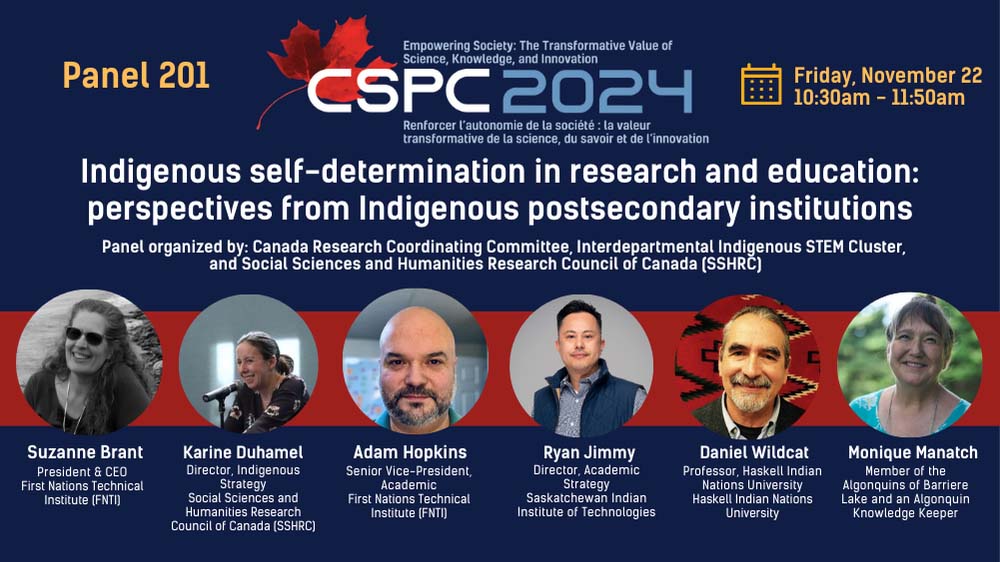Panel: 201
Indigenous self-determination in research and education: perspectives from Indigenous postsecondary institutions
Abstract:
Indigenous postsecondary institutions have advanced Indigenous self-determination across the globe, compelling a profound interrogation of mainstream education, research, and science policies and their role in colonial nation-building and the homogenization of knowledge systems. This session will convene leaders from these institutions to discuss the modes of learning, inquiry and pedagogy that are fostered there, their partnerships with other Indigenous postsecondary institutions worldwide, and how they have engaged with the bureaucratic structures in which education, research and science – and policymaking in these areas – are embedded. The panel aims to strengthen networks between Indigenous postsecondary institutions, while also facilitating broad cross-sectoral engagement.
Summary of Conversations
The discussion centred on integrating Indigenous knowledge systems into education and research, emphasizing relationality, reciprocity, and innovation. It highlighted the importance of culturally relevant curriculum development and community well-being, challenging colonial education systems. Examples included incorporating virtual reality with Indigenous knowledge, establishing innovation collectives, and tailoring skills training to community values. Success was redefined beyond economic outcomes to include cultural grounding, community impact, and intergenerational wealth. The panel stressed the significance of wellness, ceremony, and Indigenous worldviews in fostering learner success and reconnecting individuals to land, language, and community.
Take Away Messages/ Current Status of Challenges
- Indigenous knowledge and wisdom serve as an antidote to the destructive aspects of the Anthropocene, highlighting the need for relationality with the land, water, and air.
- Sovereignty, viewed through an Indigenous lens, is not just a legal principle but a covenant between a place, its power, and the emergence of people in that place.
- Mainstream education often focuses on preparing individuals for the labour market, while Indigenous education prioritizes cultural grounding and community well-being.
- Scaling up localized community initiatives and models can be challenging due to the need to maintain community relevance and cultural sensitivity.
- There are still tensions in measuring success, as local First Nations’ values may differ from those of federal funding bodies, requiring careful navigation to balance both perspectives.
- Despite progress, funding and resourcing for Indigenous institutes remain a challenge, with political uncertainties potentially stalling advancements.
- A key challenge lies in helping policymakers understand that while general frameworks can guide the work, the framework has to always honour the particularity of a people and a place if it’s going to be effective.
- Indigenous students may struggle in mainstream STEM curricula that focus on principles and functions without exploring the “why” and fostering relational thinking.
Recommendations/Next Steps
- Embody change by integrating Indigenous knowledge and values into all aspects of work, research, and education.
- Foster cross-cultural partnerships and collaborations based on respect and responsibility to bridge Indigenous and Western knowledge systems.
- Recognize and affirm the value of Indigenous knowledge in policy development and decision-making at all levels.
- Develop community-centred programs and initiatives that address local challenges and promote intergenerational well-being.
- Advocate for funding frameworks that support Indigenous institutions and their ability to provide culturally relevant education.
- Prioritize the development of Indigenous-led research methodologies that respect the relationality between humans and the environment.
- Incorporate Indigenous academic perspectives and Indigenous knowledge into program reviews and curriculum development to promote Indigenous ways of knowing.
- Strengthen Indigenous governance structures and systems to ensure self-determination in education and research.
* This summary has been generated with the assistance of AI tools


